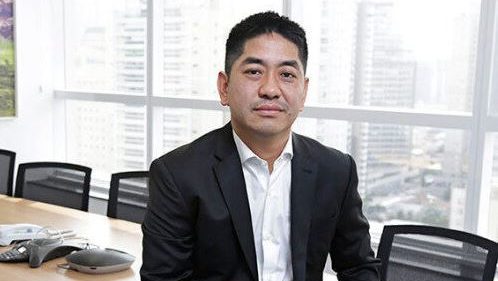“O Sindiveg entende que não há justificativas técnicas para este eventual banimento…”
Fábio Kagi é gerente de Assuntos Regulatórios do Sindicato Nacional da Indústria de Produtos para Defesa Vegetal – Sindiveg, formado em agronomia pela Unesp, com MBA pela FGV.
AgriBrasilis – O glifosato será banido no Mato Grosso?
Fábio Kagi – Não há até o momento uma determinação final sobre a proibição do glifosato no Mato Grosso. Em 2019, os Ministérios Públicos do Trabalho, Federal e Estadual ingressaram com uma Ação Civil Pública pedindo a suspensão do uso de produtos à base de glifosato no Estado por associações de agricultores, o que culminaria, com a proibição do uso. O caso está sendo analisado pelo Tribunal Regional do Trabalho da 23ª Região por meio de um procedimento especial chamado Incidente de Assunção de Competência (IAC). A discussão se encontra atualmente na etapa de audiências públicas e ainda aguarda um posicionamento definitivo da Justiça.
AgriBrasilis – Em que se baseia essa Ação Civil Pública?
Fábio Kagi – O Ministério Público alega que o glifosato pode representar riscos à saúde dos trabalhadores e ao meio ambiente. No entanto, o Sindiveg destaca que o produto já passou por rigorosos processos de avaliação científica conduzidos por órgãos oficiais como a Anvisa, que concluíram que seu uso é seguro quando aplicado corretamente. Para o Sindicato, decisões como essa devem ser baseadas em evidências técnicas sólidas, e não apenas em suposições ou percepções de risco.
AgriBrasilis – Que evidências justificam o banimento, considerando que o produto já foi aprovado pela Anvisa?
Fábio Kagi – O Sindiveg entende que não há justificativas técnicas para este eventual banimento.
“...a ausências de riscos plausíveis que justifiquem a necessidade de direcionamento às alternativas“
AgriBrasilis – Quais seriam as consequências em caso de banimento?
Fábio Kagi – O glifosato, sem dúvidas, é o herbicida com maior utilização no Brasil e no mundo. A possível proibição do glifosato pode gerar impactos significativos no campo. Um dos principais é o aumento do custo de produção, o que pode afetar a competitividade da agricultura e reduzir o número de empregos no setor.
No aspecto ambiental, há o risco de retrocesso em práticas sustentáveis, como o plantio direto, que ajuda a preservar o solo e a reduzir a emissão de carbono. Sem o glifosato, essa técnica pode se tornar inviável em muitas regiões.
Além disso, o controle de plantas daninhas ficaria mais difícil e menos eficiente. Assim, os produtores teriam mais dificuldades para manter a produtividade e enfrentariam desafios maiores para garantir o manejo adequado das lavouras.
É preciso entender que tudo que gera impactos significativos de custos à agricultura não gera apenas impactos no campo. Alimentos, fibras e energia mais caros significam redução do acesso ao alimento sobretudo pela população de menor renda, roupas mais caras, aumento na conta de energia elétrica e do preço no posto de gasolina.
AgriBrasilis – Sem glifosato, existe alternativa viável em custo e eficiência para o produtor?
Fábio Kagi – Uma eventual substituição de um produto no mercado deve ser dada a partir do lançamento de tecnologias percebidas pelo agricultor como mais viáveis. No processo natural de inovação tecnológica, as empresas sempre procuram lançar novos produtos com maior eficiência agronômica, segurança ao aplicador, consumidor e meio ambiente. O agricultor adota essas novas tecnologias. Mesmo nesse ambiente, o glifosato tem se mantido como uma das melhores alternativas há muitos anos.
Mas a questão principal neste caso, não é a existência ou não de alternativas. É a ausências de riscos plausíveis que justifiquem a necessidade de direcionamento às alternativas. Esta avaliação só pode ser realizada, de forma técnica, pelas autoridades regulatórias.
AgriBrasilis – Qual é a posição do Sindiveg?
Fábio Kagi – O Sindiveg destaca que todos os produtos utilizados na proteção de cultivos, inclusive o glifosato, passam por análises técnicas criteriosas feitas por órgãos do governo, como os ministérios da Agricultura, do Meio Ambiente e da Saúde, por meio da Anvisa. Neste cenário, a entidade é favorável à reavaliação de substâncias, desde que esse processo siga a legislação vigente e se baseie em informações científicas confiáveis e atualizadas.
No entanto, o Sindicato expressa preocupação com decisões externas que não estejam fundamentadas em critérios técnicos sólidos. Esse tipo de interferência pode gerar insegurança no setor, afetando diretamente os produtores rurais.
LEIA MAIS:

